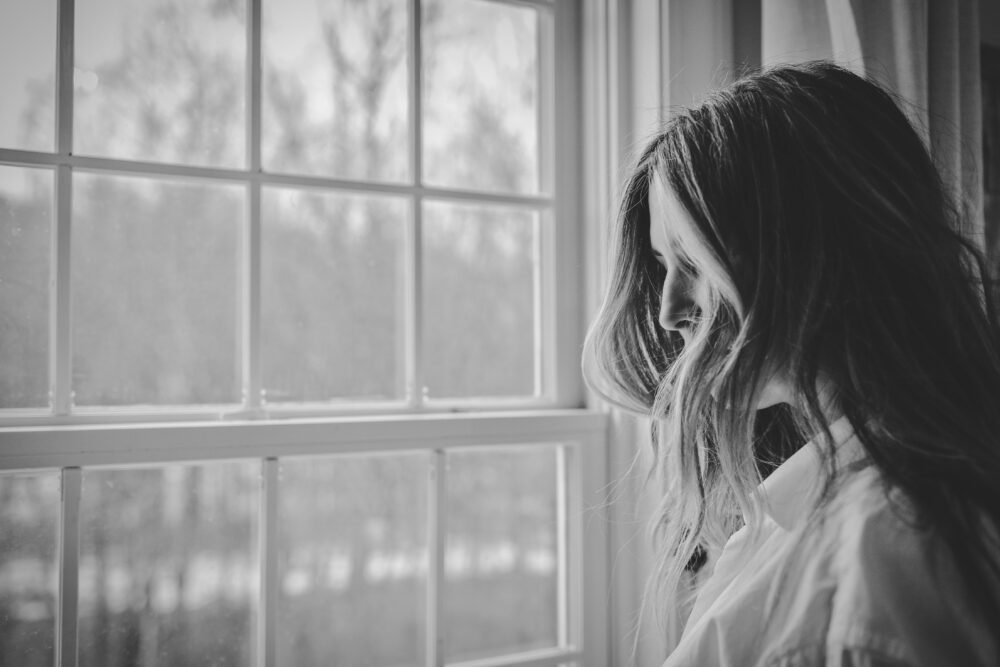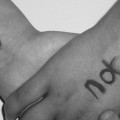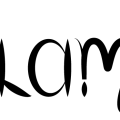
Submitted by guest author Laura A Thor, DMin, LCSW
It is important for those of us who’ve lost someone to suicide, that we examine the awful guilt we take on. We feel guilt when those we tried so hard to protect manage to escape our efforts to manage their depression, addiction or self-hate and despair. We feel guilt for what we could not control: their inability to keep themselves safe and have hope through perhaps years of suffering. Sometimes, looking back, we think we could have ‘been there’ to prevent suicide in a particular moment or bad day. More often, we mistakenly assume we could have ‘stayed there’ for all such moments and every difficult day of their suffering, and could have prevented their suicides. Guilt for “not doing enough” cannot be borne for things we have no control over: this induces shame, the debilitating sense of not being enough.
When I was learning to become a psychotherapist, I heard a famous therapist tell a family of a suicidal teen how to keep him safe: make sure a parent stayed with him every moment of the day, even sleeping in his room on the floor, or keeping the bathroom door a bit ajar. Therapist Jay Haley didn’t mean to make the parents ultimately responsible and knew they could not be always present, day in and out for weeks and months. At most, he figured that in a crisis, these powerful actions would communicate parental love to the depressed teen and would inspire hope in that teen, hope of being lovable and valuable and held in safety until the emotional storms passed. Haley was an idealist whose methods were for those parents with considerable inner and external resources, stamina, and self-control. But didn’t the parents have to sleep too? Go to jobs? Tend to their other children?
How much guilt occurs when we think we could have been …super-human? Inappropriate guilt is the price we pay for being human while expecting ourselves to be gods.
I like this passage from George Howe Colt, author of the book “November of the Soul: the Enigma of Suicide”:
“Guilt is a way of bringing control back into a situation that seems out of control…It comes ftom the perception that you could have done something to prevent it. There’s something narcissistic about that because it suggests that you could single-handedly have changed the outcome. It’s not rational because you don’t take that kind of responsibility for anyone’s life while he is alive—otherwise, you don’t allow him to be a person. But when someone kills himself, you feel you should have been around him every waking minute. Everyone does. Everyone suddenly takes one hundred percent responsibility for that person’s life.”
I have lost loved ones to suicide. I know what suicide loss feels like and how essential it is for me to carefully self-monitor for the level of guilt that robs me of healing. Severe guilt gives no quarter for daring to live on. In this time of COVID, I am reminded of how little power I have over the suffering of those I love. There’s an awful grace to be found in this knowledge, a grace that gives me the gift of humility. The best I can do to be compassionate to myself and to those in my life, is to make the efforts I can make, as imperfect as that is, to lovingly tell someone I care, to help with the material resources I have, to stay up all night with someone if needed, and to recognize, painful as it is, that I cannot stay up all night forever. It takes a village to help keep someone safe, and I am but one villager. I am not made of infinite endurance to overcome their infinite pain. That is the tragedy of suicide. For that, I have to ask, in prayer or meditation or ritual, for their forgiveness: please know how devastated I am at your death, how much I cared and tried, and how guilty I feel for failing you. Please forgive me.”
While I work every day to help keep people alive, I must allow myself to be just human. I must share my heart with a community of other survivors. I must daily remind myself to extend forgiveness to myself. I need to give myself permission, not to “move on” (I detest that term), but to move forward. I need to keep my beloved dead in my heart while living forward, carrying my love into the life I am given.




Excellent article! Thanks for sharing.
One of the best articles I have read about dealing with the horrible guilt of those who are left behind after the suicide of a loved one. Thank you. You have helped me recognize, once again, my irrational desire to have been a super-human, super-mom, all-knowing, all-powerful, all-wise, all-(fill in the blank). It’s an impossible task. Thank you for reminding me that I did love in the best way I could, and I still do love, and continue to love this very special person I lost.
Thank you for sharing. It is so hard not to feel guilty and think we could have done something, right?? I believe there should be a stage that we get to the point where we don’t feel that way??
It’s been a year today since my daughter left me and I struggle sometimes putting my feelings into words to explain to my husband how I feel. You help tremendously and also helped me see things weren’t down to me or anything I did or didn’t do. I alone couldn’t change anything, that’s been the hardest thing to come to terms with, again you have helped.
I just sent the link, oursideofsuicide to a friend, who lost his only son to suicide about 11 months ago. I want so bad to take his pain away. Yet, I know I can not do that. But, I hope that he comes here, and he finds something, to help him. I asked him to please come check it out, I hope it will help him in some even small way. The article I just read, is the first one he will see, if he comes to see. And it’s perfect. I have a small PTSD page on Facebook. I created it because it was my way not to feel so hopeless , because I can’t control every minute of everyday for other people. It’s called AnotherdayisavictiryoverPTSD.
I am not a professional, so I don’t offer “advice” on the page. I just post positive things, maybe to remind someone they are worth the breath they take. I have stayed online talking to a few people, talking them into giving tomorrow a chance. Sometimes for 10 hours, untill that giving up feeling passes. I follow up. And one man, about six months later, thanked me, because his son, he hadn’t seen in 13 years, was coming to live with him. He asked how he could repay me. I told him, there is no debt. If you feel you must give something back, I ask, when you feel stronger, and if you see anyone struggling, keep the circle of love unbroken. I wasn’t sure I even made a difference , in choosing to help others, know they aren’t alone, in that hour of darkness. Until a couple months later, I was just going through posts on face book,. and I stopped, to read what he said, because I saw his name in a comment to someone else. And I saw his words,. And tears started talking, I didn’t even know I was crying, till my friend asked me if I was ok..I said yes. Because his words to another person, we’re almost word for word what I told him.. he kept that circle of love unbroken. And it does matter. But I know sometimes their pain is too much, I thank you for your words, because, it kinda is a responsibility we,or I should say I take on , when I try to help others , not to commit suicide. I can not always do that. And the quilt, when I couldn’t , eats away , and can bring me to my knees emotionally. In sending my friend the link, and just coming here to see what he would find to help him if he came today, I was able to be a little more ok when I can not be the everything we wish we were for those who choose to leave us. Thank you. This article helped me in ways I can’t even describe. Huggzz